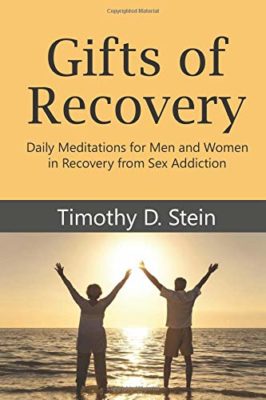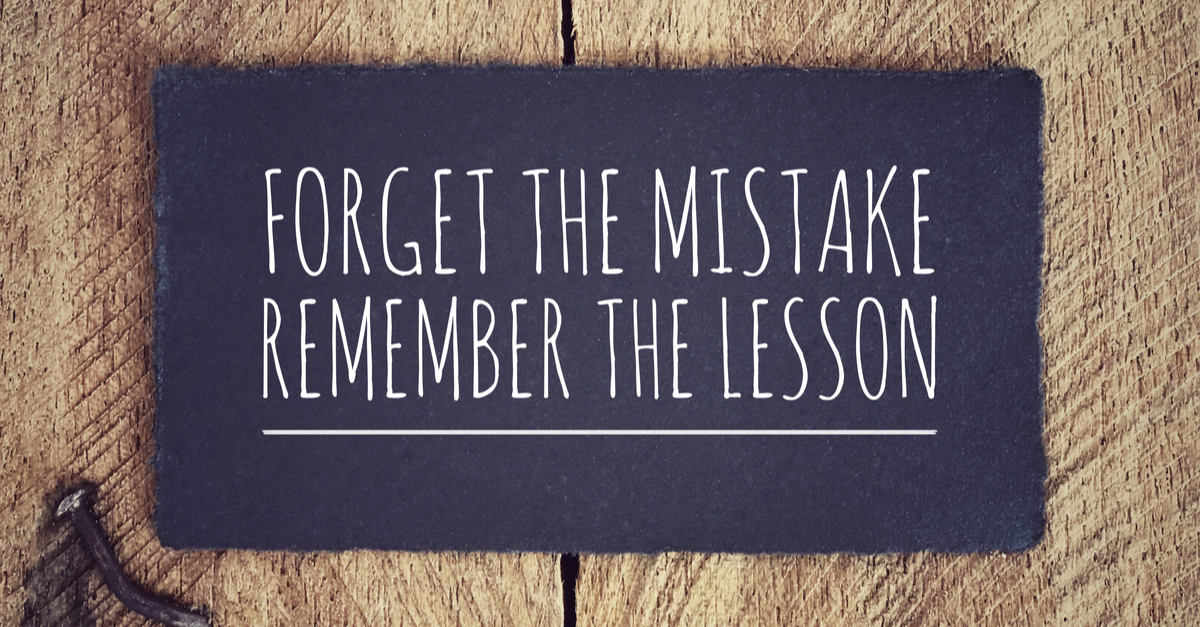By Tim Stein
Meditation from Gifts of Recovery.
“The greatest mistake you can make in life is to be continually fearing you will make one.”
–Elizabeth Hubbard
We would rather not make mistakes. However, it is through our mistakes that some of our most important learning takes place. If we go through life always playing it safe in an attempt to never make a mistake, then we miss out on the opportunities to learn. Indifference to mistakes is unhelpful. However, we learn, grow, and thrive when we thoughtfully approach life with a willingness to make mistakes.
Am I afraid to make mistakes? Am I indifferent to mistakes? What gifts await me as I accept my mistakes and learn from them?

As therapists, we love our clients’ mistakes. They provide grist for the therapeutic mill. The growth and change our clients experience is often directly connected to exploring and learning from their mistakes. Little therapeutic progress would be made without helping our clients to acknowledge and explore their mistakes.
Active addicts typically hate mistakes. They represent the addict’s shortcomings. Mistakes are a reminder of everything the addict cannot control. The addict’s internal shame gets wrapped up with their mistakes. Everything the addict is trying to avoid through the oblivion of addiction is highlighted by their mistakes.
In recovery, addicts learn to strengthen their recovery by acknowledging and exploring their mistakes. They know their mistakes often guide their recognition of character defects, which allows for deeper change. Addicts in recovery know that it is vital for their sobriety and their recovery to admit their mistakes to others. Recovery and the acceptance of mistakes go hand in hand.
As wounded healers, we are walking a recovery path informed by our own mistakes. We understand the power that understanding and changing our character defects can have. We understand the recovery growth that comes from accepting our mistakes and asking our higher power to remove them. We have experienced the healing power that comes from acknowledging our mistakes to our partners and/or our friends. In recovery, we have allowed our mistakes to become a springboard for growth.
But do we allow this same growth to take place in our role as a therapist? This humility seems to be more difficult. In our role as therapist, there is an assumption that we are the expert. We have the answers. We know what to do. Is it OK for the “expert” to make a mistake? The simple answer is “Yes!” This is where we need to actively bring our recovery experience into our work life. Making mistakes is part of life regardless of our role as addict, therapist, or human being. Problems are not created by making a mistake; they are created by not acknowledging our mistakes.
As wounded healers, when we hide or gloss over our mistakes, we create the same confusion and chaos in our work life, our interactions with our clients, and our relationships with co-workers that we created when we were actively deceiving others in our addiction. However, our clients can grow and benefit from exploring our mistakes as well as their own. Co-workers often have more respect for us when we own our mistakes and acknowledge our shortcomings as well as our strengths. When we stop hiding our mistakes and accept the discomfort this creates, our careers become more successful. We grow, our clients change, and we contribute to a more effective workplace when we walk the walk of transparency and accountability regarding our mistakes.
